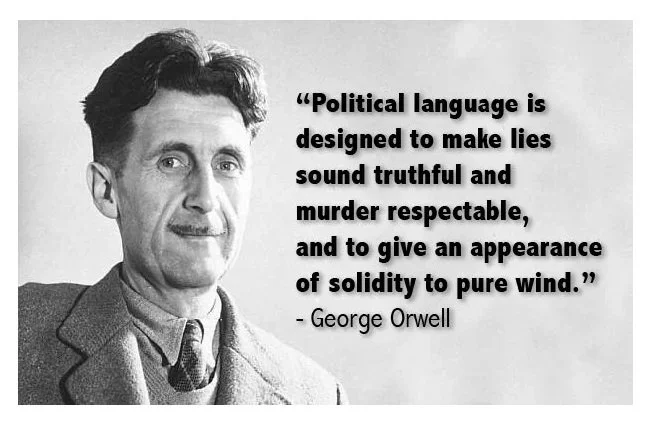Conversation
Comedians Mel Smith and Griff Rhys Jones have one of their “head to head” conversations
Daily life is often filled with small talk. Simple exchanges of pleasantries that make social interaction easier and modern life tolerable. Not every conversation needs to be a heavy weight and meaningful exchange. More often than not, all you have to do is politely listen, express an appropriate response and end the verbal exchange on a positive note. It’s not exactly rocket science but that’s not to say that it’s easy for everyone. Some people seem to have an innate talent for this sort of social discourse. Mrs P is very good at it. She remembers people’s names, what they may have said previously and most importantly she shows interest. I’m not so good at small talk. I can do it but I tend to find that a continuous diet of it is unrewarding. Being effectively “retired”, I mainly meet others who are no longer working but they tend to be at least ten years my senior. In the UK the biggest factor that currently determines differing opinions on all major issues is age.
One of the few things that I miss about full time employment is talking to intelligent people. Although I’m not keen on small talk, I’ll happily listen at length to those who have interesting and informed insights based upon a wealth of experience. Such conversations do not have to be couched in academia. It is more of a case of talking to someone who just knows their job or subject well and they are at total ease when discussing it. They’re not merely sharing information. Rather they are relaying knowledge and imparting wisdom. Furthermore, such exchanges can come from all quarters. I remember two exceptional conversations I had in the early 2000s. One was with a senior operations officer of a steel plant and the other was with an air conditioning engineer who had previously been a military policeman. Both were knowledgeable, worldly, good communicators and I suppose you could possibly say charismatic.
Elvis famously advocated for a “little less conversation” but I consider such advice dubious
I also miss the conversations I had with my father. He similarly was an inexhaustible source of information, anecdotes and measured opinions. All of which had been born out of decades of reading, study and sober reflection. His most formative years had been during World War II as he was ten years old when it began and sixteen when it ended. He was at heart an academic and although he had feelings, in many matters he never let his heart rule his head. Hence he had a capacity to change his position on certain subjects over time, because new data or experiences logically required a re-evaluation. It’s a rare quality these days and I wish more people had such an adaptable outlook. Sadly he’s been gone four years now and it has left a significant conversational gap that has yet to be filled.
As a consequence of this conversational deficit, I find myself listening to a lot of podcasts, audiobooks and other content that is structured around a discussion. If I can’t find an engaging conversation of my own, I can at least listen to someone else's. Thanks to the internet, I can fill my day if need be with the musings of the finest minds, the wit of the funniest people and the badinage of the greatest raconteurs. However, despite the pleasure such material brings, there is a downside. One’s expectations of conversations in the real world have to be seriously adjusted. A chance encounter with someone at the bus stop will seldom result in an in depth analysis of Etruscan pottery or Cartesian dualism. Naturally it can be cogently argued that it is unreasonable to expect such things to begin with, however that doesn’t alter the fact that the heart wants what the heart wants.
“Man is humbled by the uncertainty of what he can know, but still has the itch to gain absolute knowledge, often with tragic consequences”. Jacob Bronowski
Something I’ve noticed about the nature of conversations, is how they evolve over the course of one’s life. I cast my mind back to my late teens and earlier twenties and recollect many a late night discussion, fueled by alcohol and couched in the certainty of youthful inexperience and ignorance. Nowadays when discussing weighty issues such as geopolitics or economics, the one thing that is conspicuously missing is any shred of certainty. The financial crisis of 2008, COVID and the ongoing war in the Middle East all go to show how the established status quo can alter quickly. At the age of 56, I now understand Socrates’ position of “I know that I know nothing” and I am extremely sceptical of anyone whose arguments and philosophical positions are presented as immutable truths.
However, in recent years a new source of engaging conversation and interesting inquiry has been my grandchildren. They are young, confident and curious about lots of things. Therefore they ask a lot of questions and assume I have all the answers. As well as being deadly earnest, they’re also very funny, though often unintentionally. Although there is a requirement to explain things in a manner that children can understand, you must never patronise or condescend to children. They’re far shrewder than you think. It is also a golden opportunity to impart to my grandchildren a love of engaging and enjoyable conversation. Because it is such an invaluable social tool. Conversation is good for building relationships, sharing ideas, resolving conflicts and creating trust. It is also beneficial for one’s mental health. And if you can’t find such conversations in real life, then seek them online.






























